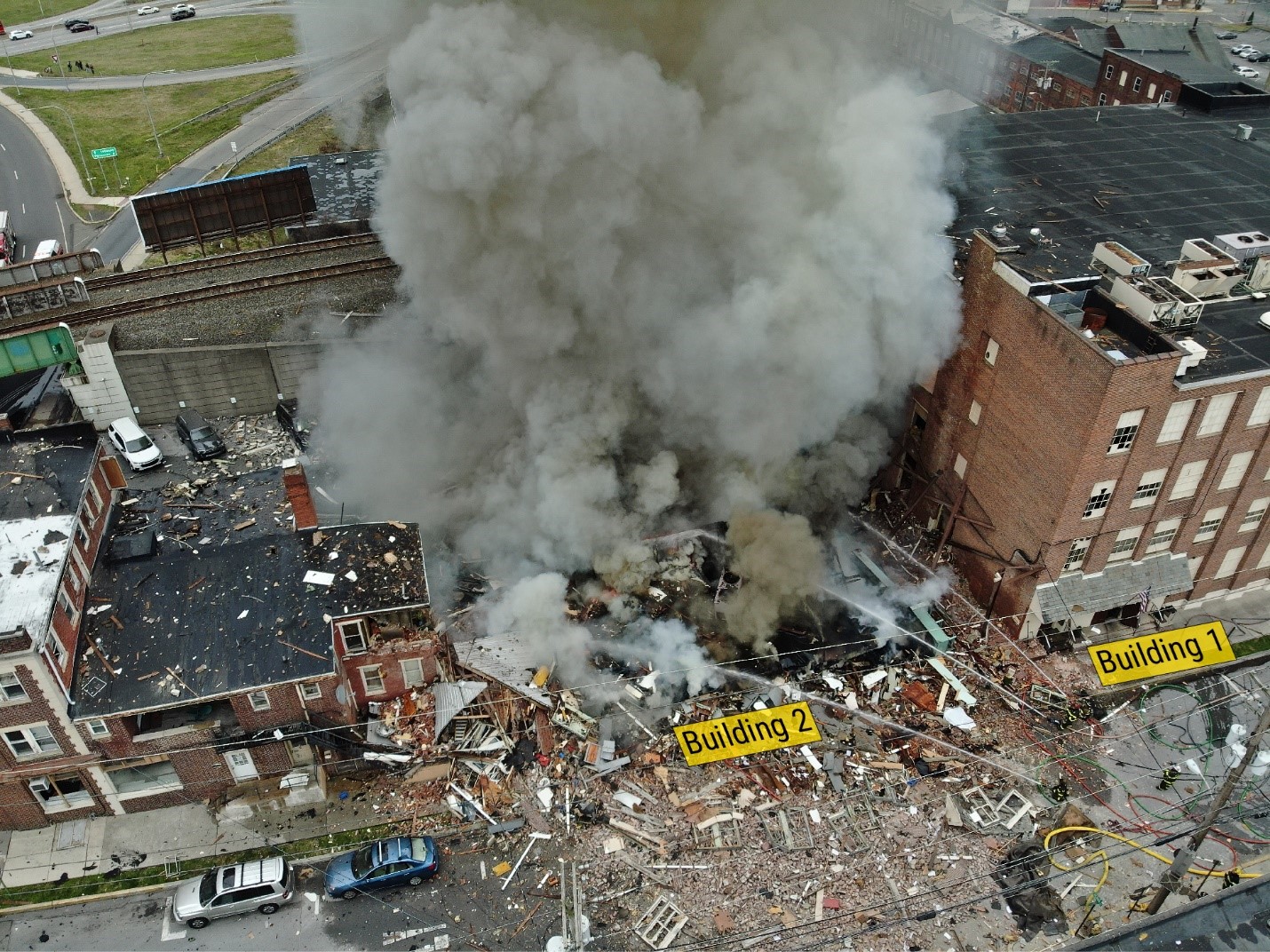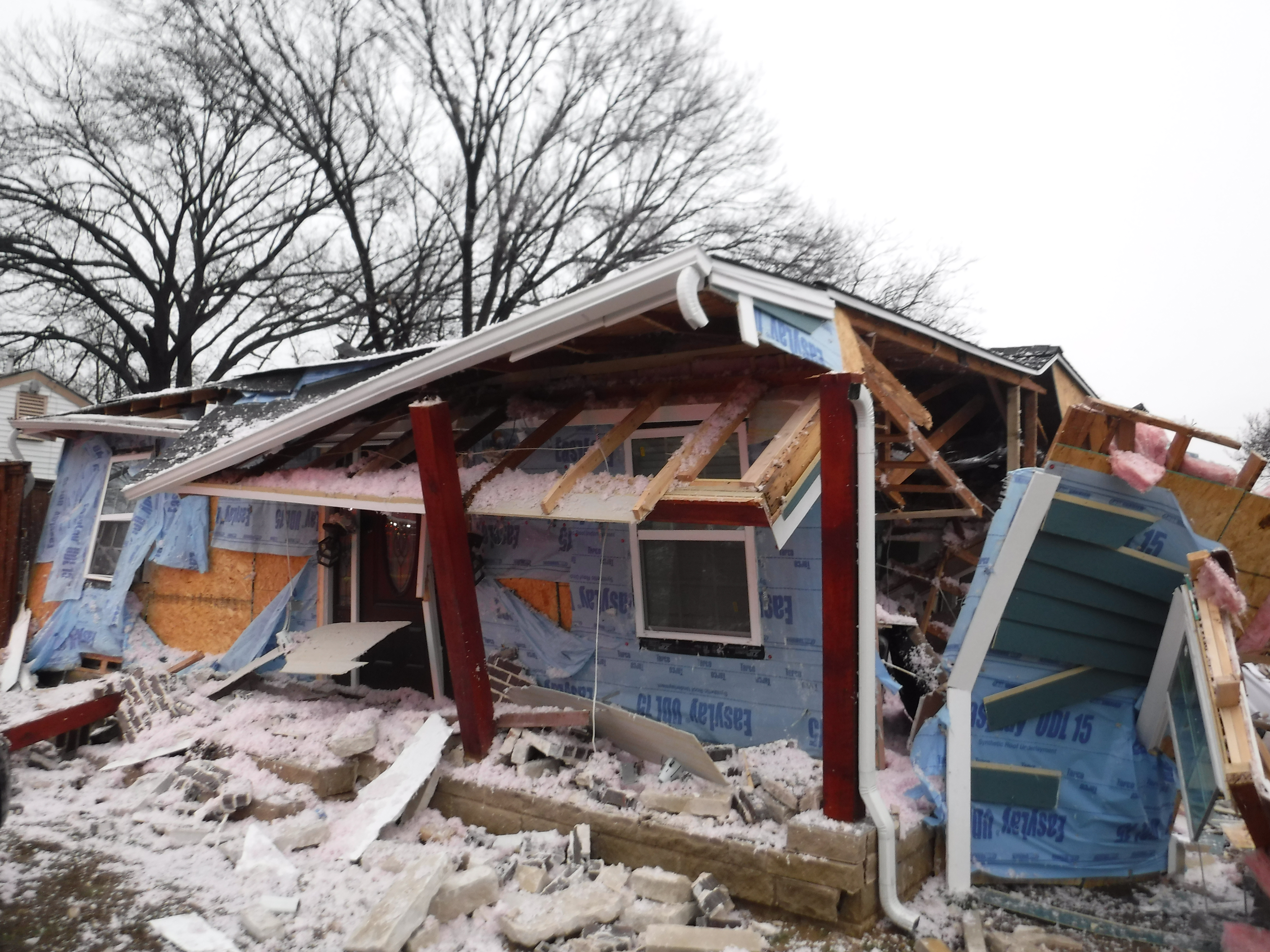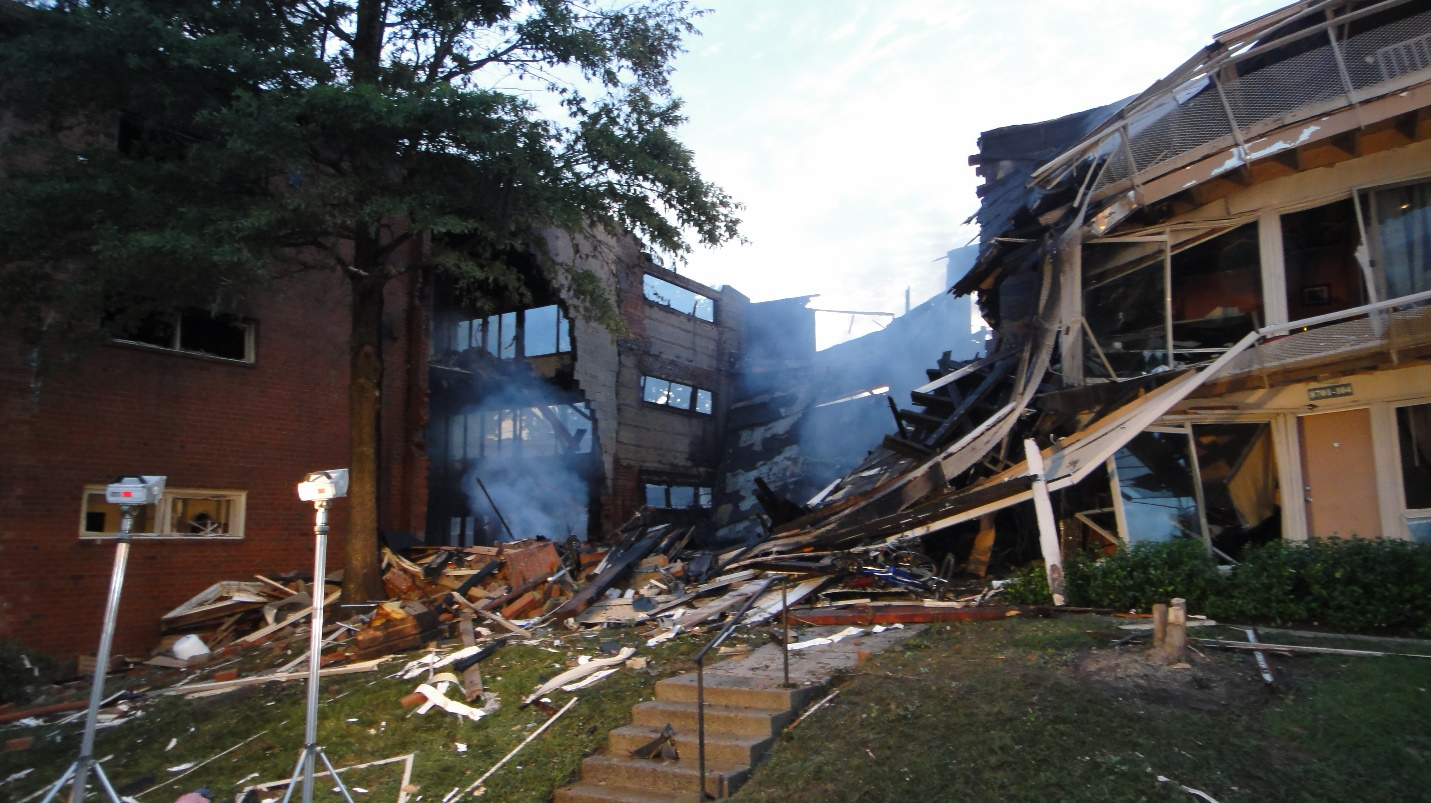Natural Gas Alarms Save Lives
The Problem
Safety Alert Section 2 Title - It is vital that occupants evacuate a building when a natural gas leak occurs or is suspected.
- Although natural gas is generally a safe source of energy, when a pipeline or natural gas appliance leaks, the gas can migrate into a building and reach dangerous concentrations that can ignite and explode.
- Without additives, natural gas is odorless and cannot be easily detected if it leaks and accumulates. Therefore, pipeline safety regulations require that gas companies add odorant to allow people to detect gas leaks. The odorant smells like sulfur or rotten eggs.
- The addition of odorant does not always alert people to the presence of natural gas because:
o Some people cannot smell it, are sleeping, do not know that the odorant is associated with natural gas, or are not in the part of the building where the natural gas is accumulating.
o The odorant can be stripped out of the gas, leaving it odorless again, if the natural gas migrates through soil before entering a building.
- Natural gas customers may not be aware of the existence of natural gas alarms, which are safety devices that monitor the air for natural gas and sound an alarm, similar to a smoke detector, if they detect dangerous levels of natural gas. These devices can alert people to the presence of natural gas in the building so that they can evacuate safely.
Related investigations
Safety Alert Section Content 3 The National Transportation Safety Board (NTSB) has investigated natural gas leaks that have resulted in fatalities, serious injuries, and major property damage in both commercial businesses and residential buildings. A natural gas alarm could have reduced the consequences of each accident through early detection and alarms that could have prompted timely evacuation.
Safety Alert Section Content 5  (Photograph provided by the Western Berks Fire Department.) (Photograph provided by the Western Berks Fire Department.)On March 24, 2023, a natural gas-fueled explosion and fire occurred at an R.M. Palmer Company candy factory in West Reading, Pennsylvania. The explosion destroyed a factory building and caused significant structural damage to an adjacent building and other surrounding structures. Seven people were killed, 10 people were injured, and 3 families were displaced from a neighboring apartment building. The explosion and fire resulted from an underground natural gas line leak; the gas spread into the building. Although some people did not smell gas in the building, several others did, but they were not sure what to do and did not evacuate. Had natural gas alarms been installed, they would have alerted employees to the presence of natural gas in the building, prompting the employees to evacuate and likely reducing or eliminating injuries and loss of life. PLD23LR002
Safety Alert Accordion Header Title 
(Photograph provided by the Dallas Fire-Rescue Department.)
On February 23, 2018, a natural gas-fueled explosion occurred in a house, injuring all five occupants, one fatally. The one-story, two-bedroom house sustained major structural damage. Following the explosion, the NTSB located a through-wall crack in the 71 year old natural gas main that served the house. The gas main was damaged during a sewer replacement project 23 years earlier. A leak later developed due to the damaged main, but the leak went undetected and allowed natural gas to migrate through the soil into the house. Had a natural gas alarm been installed in the house, the residents likely would have been alerted to the dangerous levels of natural gas and evacuated before the explosion. PLD18FR002
Safety Alert Accordion Title 1 
(Photograph provided by the Public Service Commission of Maryland.)
On August 10, 2016, a 14-unit apartment building partially collapsed due to a natural gas fueled explosion and fire. The explosion and fire also heavily damaged an adjacent apartment building, which shared a common wall with the accident building. As a result of this accident, 7 residents died, 65 residents were transported to the hospital, and 3 firefighters were treated and released from the hospital. In this accident, an indoor mercury regulator with an unconnected vent line failed and leaked natural gas into a locked room where the gas meter was located. The gas accumulated and eventually ignited. Had natural gas alarms been in use throughout the building, the residents could have been alerted and evacuated the buildings before the explosion. DCA16FP003
PLD23LR002
 (Photograph provided by the Western Berks Fire Department.) (Photograph provided by the Western Berks Fire Department.)On March 24, 2023, a natural gas-fueled explosion and fire occurred at an R.M. Palmer Company candy factory in West Reading, Pennsylvania. The explosion destroyed a factory building and caused significant structural damage to an adjacent building and other surrounding structures. Seven people were killed, 10 people were injured, and 3 families were displaced from a neighboring apartment building. The explosion and fire resulted from an underground natural gas line leak; the gas spread into the building. Although some people did not smell gas in the building, several others did, but they were not sure what to do and did not evacuate. Had natural gas alarms been installed, they would have alerted employees to the presence of natural gas in the building, prompting the employees to evacuate and likely reducing or eliminating injuries and loss of life. PLD23LR002
PLD18FR002

(Photograph provided by the Dallas Fire-Rescue Department.)
On February 23, 2018, a natural gas-fueled explosion occurred in a house, injuring all five occupants, one fatally. The one-story, two-bedroom house sustained major structural damage. Following the explosion, the NTSB located a through-wall crack in the 71 year old natural gas main that served the house. The gas main was damaged during a sewer replacement project 23 years earlier. A leak later developed due to the damaged main, but the leak went undetected and allowed natural gas to migrate through the soil into the house. Had a natural gas alarm been installed in the house, the residents likely would have been alerted to the dangerous levels of natural gas and evacuated before the explosion. PLD18FR002
DCA16FP003

(Photograph provided by the Public Service Commission of Maryland.)
On August 10, 2016, a 14-unit apartment building partially collapsed due to a natural gas fueled explosion and fire. The explosion and fire also heavily damaged an adjacent apartment building, which shared a common wall with the accident building. As a result of this accident, 7 residents died, 65 residents were transported to the hospital, and 3 firefighters were treated and released from the hospital. In this accident, an indoor mercury regulator with an unconnected vent line failed and leaked natural gas into a locked room where the gas meter was located. The gas accumulated and eventually ignited. Had natural gas alarms been in use throughout the building, the residents could have been alerted and evacuated the buildings before the explosion. DCA16FP003
What can businesses or homeowners do?
Safety Alert Section Title 5 -
Install natural gas alarms in your building or home that meet National Fire Protection;
Association 715 standards. Natural gas alarms are available online and at home improvement stores and can provide early warning about natural gas leaks so that you can evacuate and notify your gas company. Consult the guidance found in the alarm’s packaging on placement, installation, and maintenance. A large building may need multiple alarms. -
Educate yourself and others on natural gas hazards. Read the safety information provided in your gas billing inserts or safety information at your gas company’s website. Know what to do when a natural gas alarm is triggered or when you smell gas: evacuate everyone from the building immediately to a safe distance and then contact the natural gas company
-
Encourage others to install natural gas alarms. Share the benefits of installing natural gas alarms with others.
-
Advocate for natural gas alarms to be required. Unlike smoke or fire alarms, natural gas alarms are not required for commercial or residential buildings even if they have natural gas service. Reach out to your local or state building or fire code officials and recommend that natural gas alarms be required to ensure occupants are alerted in the event of a natural gas leak.
Interested in more information?
Safety Alert_Section Title 6
|